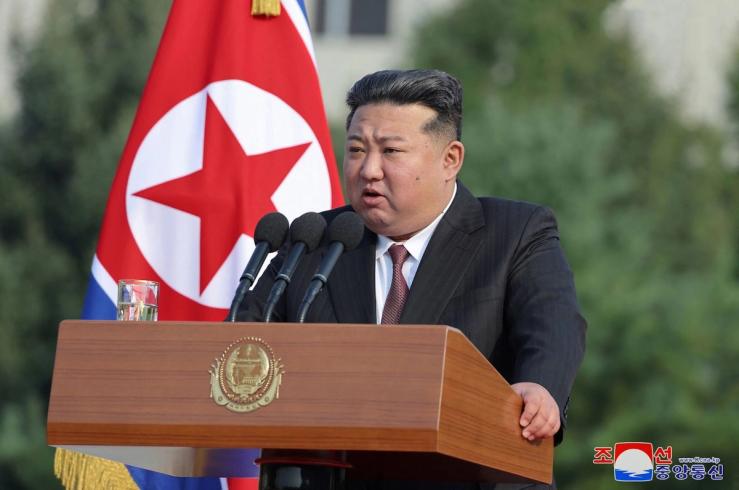The News
North Korea said it launched an intercontinental ballistic missile on Thursday, a test that experts said was likely aimed at grabbing American attention ahead of the country’s presidential election on Nov. 5.
Pyongyang said the missile stayed in the air for longer than any previous test, signaling both an increased range and ability to carry heavier payloads. Officials have previously said the North wants to design a missile that could carry several nuclear warheads at once.
North Korea has made a tradition of testing weapons around major American political events and holidays. On July 4, 2017, North Korea’s President Kim Jong Un launched the country’s first-ever intercontinental ballistic missile, a weapon that appeared to be capable of hitting the US mainland.
SIGNALS
Missile test could benefit Trump campaign
The launch announcement is designed to rattle Washington ahead of the US election, security experts told The Washington Post, and could bolster former US President Donald Trump’s argument that he is better at taming foreign autocrats. North Korean leader Kim Jong Un and Trump were on better terms than any of their predecessors ever were, and it’s highly unlikely that Vice President Kamala Harris would extend the same courtesy if elected, the RAND think tank wrote. Other US adversaries have held similar drills: Russia carried out nuclear weapons exercises, an oblique warning to Washington over its continued support for Ukraine, which Harris has made a key part of her campaign.
Weapons test adds to global uncertainty
Global uncertainty is growing over the US election’s outcome and the geopolitical ramifications, with the price of gold — traditionally seen as a haven asset in times of turmoil — rising to record levels. “We have elections coming up, the political climate here is just very uncertain, the Fed is cutting interest rates, prospects of Russia, Ukraine,” said a senior market strategist to Reuters. Meanwhile, currency traders are also preparing for a surge in volatility, particularly in the event of a Trump win. Experts have said that the Chinese yuan and the Mexican peso are likely the most vulnerable. “The binary nature of next week’s contest implies significant [foreign exchange market] moves after the event,” Barclays strategists noted, Reuters reported.


